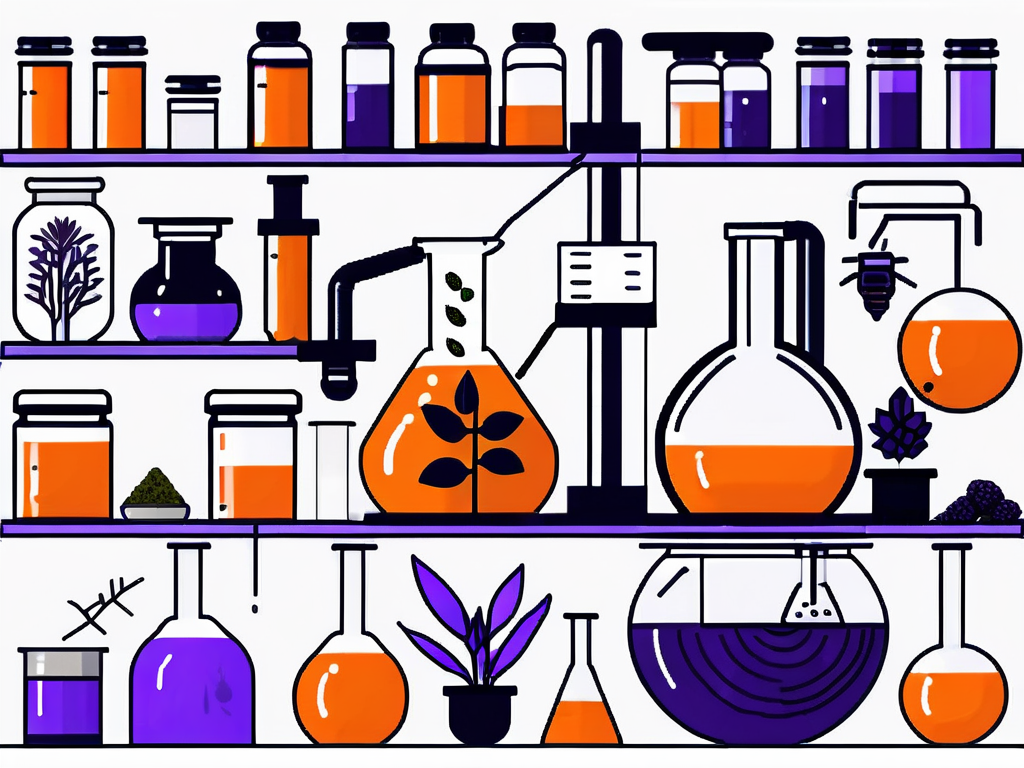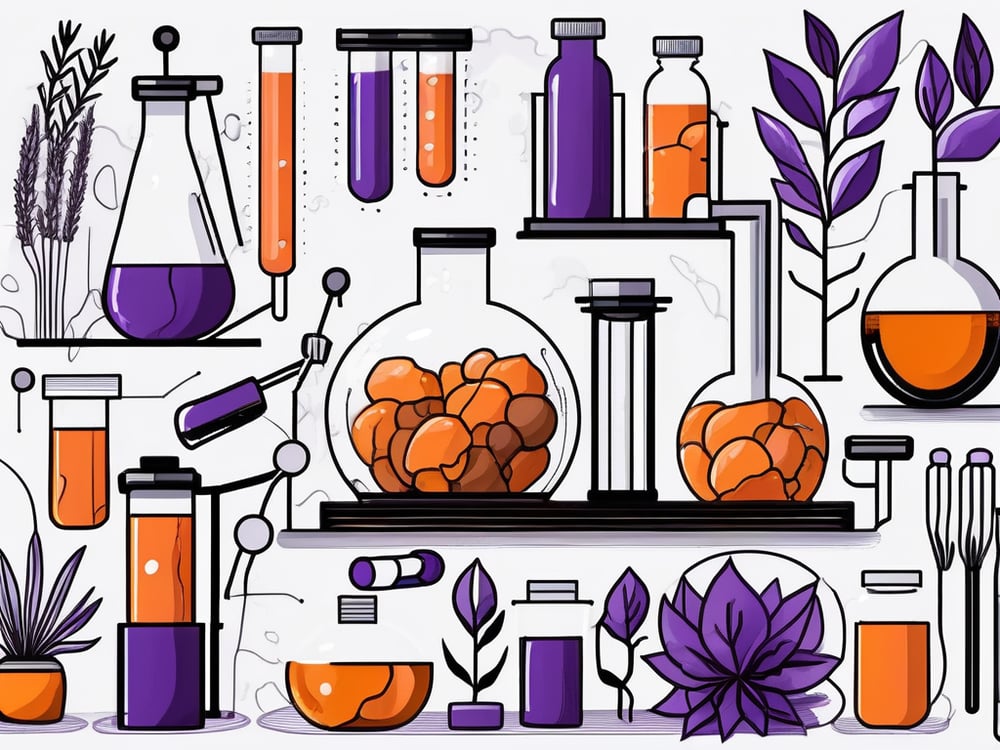Did you know that the global dietary supplement market is expected to reach a whopping $349.4 billion by 2026?
It’s clear that supplements have become a booming industry, with millions of people around the world turning to them for their health and wellness needs. But have you ever wondered where supplement companies get their ingredients?
In this article, we’ll delve into the fascinating world of supplement ingredient sourcing and explore the various factors that come into play. So let’s dive in and uncover the secrets behind your favorite supplements!
- Common sources of supplement ingredients
- Natural vs. synthetic ingredients: pros and cons
- The process of ingredient acquisition: from suppliers to quality control
- Regulations and standards in supplement ingredient sourcing
Table of Contents
ToggleCommon Ingredient Sources for Supplement Companies
Supplement companies source their ingredients from a wide range of suppliers. Some common sources include:
- Botanical farms
- Fisheries
- Mineral mines
These suppliers specialize in cultivating, harvesting, or extracting specific ingredients to meet the demands of the supplement industry. Working closely with these suppliers helps ensure a steady supply of high-quality ingredients. For brands looking to streamline their logistics and fulfillment, 3PL services in the USA can help manage inventory and distribution efficiently.
Looking for high-quality ingredient sourcing? Learn more about Fulfyld’s supply chain solutions.
When it comes to ingredient sourcing, supplement companies have two main options: natural or synthetic ingredients. Let’s take a closer look at each of these categories and explore their pros and cons.
Natural vs. Synthetic
Choosing between natural and synthetic ingredients is a crucial decision for supplement manufacturers. Natural ingredients, derived from plants, animals, or minerals, areoften perceived as more wholesome and environmentally friendly. They undergo minimal processing, retaining their inherent properties and potential health benefits.
On the other hand, synthetic ingredients are meticulously created in a laboratory setting, offering precise control over factors like purity and potency. While some consumers may prefer the familiarity of natural ingredients, others appreciate the consistency and reliability that synthetic ingredients can provide.
Want premium-quality supplement sourcing? Discover Fulfyld’s quality assurance services.
The Process of Ingredient Acquisition
Acquiring ingredients for supplements involves a well-defined process that starts with establishing relationships with suppliers and ends with thorough quality control measures. Let’s explore the key steps involved in this process.

Before diving into the intricacies of ingredient acquisition, it’s important to highlight the significance of sourcing high-quality ingredients. Supplement companies often conduct extensive research to identify reputable suppliers who adhere to strict quality standards and ethical practices. This initial phase sets the foundation for a successful partnership built on trust and mutual respect.
Supplier Relationships and Contracts
Supplement companies build strong relationships with their ingredient suppliers to ensure consistency, reliability, and quality. Contracts are often put in place to outline the terms of the partnership, including:
- Pricing
- Delivery schedules
- Quality specifications
Maintaining a healthy relationship with suppliers is crucial for a smooth and efficient ingredient acquisition process.
Furthermore, these relationships go beyond mere transactions; they involve open communication channels to address any potential issues promptly. Regular audits and site visits are conducted to verify that suppliers comply with industry regulations and uphold the company’s values. This collaborative approach fosters transparency and accountability throughout the supply chain.
Quality Control and Testing
Once ingredients are acquired, thorough quality control and testing procedures are implemented. These include performing tests to ensure the ingredients meet specific quality standards, such as:
- Purity
- Potency
- Absence of contaminants
This rigorous testing process helps guarantee that the final product is safe and of the highest quality.
In addition to standard quality control measures, some supplement companies invest in cutting-edge technology to enhance testing capabilities further. Advanced analytical techniques, such as mass spectrometry and chromatography, are employed to detect even trace amounts of impurities or adulterants.
Ensure your supplements meet FDA & GMP compliance with Fulfyld’s quality control services.
By staying at the forefront of scientific innovation, these companies demonstrate their commitment to delivering premium products to consumers.
Regulations and Standards in Ingredient Sourcing
As with any industry, supplement ingredient sourcing is subject to regulations and standards to ensure consumer safety and product quality. Let’s explore the key regulatory aspects and industry standards that supplement companies must adhere to.
Ensuring the safety and quality of supplement ingredients is paramount in the health and wellness industry. One crucial aspect of regulations is the requirement for companies to conduct thorough testing and analysis of their sourced ingredients to verify their purity and potency. This testing helps to prevent contamination and ensures that consumers are receiving products that meet the highest standards of quality.
Domestic and International Regulations
Supplement ingredient sourcing is governed by both domestic and international regulations. Each country has its own set of rules and guidelines regarding ingredient safety, labeling, and manufacturing practices. Compliance with these regulations is essential for supplement companies to bring products to global market, so make sure not to neglect them.
When sourcing ingredients internationally, supplement companies must navigate the complexities of varying regulations and standards across different countries. This requires a deep understanding of global regulatory frameworks and a commitment to meeting the diverse requirements set forth by each region.
By adhering to these regulations, companies can ensure that their products meet the necessary criteria for safety and quality on a global scale.
Industry Standards and Certifications
In addition to regulatory requirements, the supplement industry has established various industry standards and certifications to maintain and elevate product quality. These may include:
- Good Manufacturing Practices (GMP)
- Third-party certifications
- Quality assurance programs
Adhering to these standards and certifications demonstrates a commitment to quality and consumer trust.
Obtaining certifications such as GMP involves implementing stringent quality control measures throughout the manufacturing process. This includes:
- Proper documentation of procedures
- Thorough testing of ingredients and finished products
- Adherence to strict cleanliness and safety protocols
By following these industry standards, supplement companies can instill confidence in consumers and uphold the integrity of their products.
Supplement Industry 101
Supplement companies play a crucial role in providing consumers with a wide range of products that aim to support their health and wellness needs. From vitamins and minerals to herbal extracts and protein powder, supplements come in various forms and cater to diverse needs.

Supplements have gained popularity in recent years as more people are becoming health-conscious and seeking ways to complement their diet and lifestyle. The industry has seen significant growth, with new products constantly being introduced to meet the evolving needs of consumers. This dynamic nature of the supplement market keeps companies on their toes, continuously innovating and improving their offerings.
The Role of Supplement Companies
Supplement companies are responsible for formulating, manufacturing, and packaging these products. They are committed to producing high-quality supplements that meet strict quality standards. This includes ensuring that the ingredients used in their products are safe, efficacious, and sourced from reputable suppliers.
Moreover, supplement companies often invest in research and development to stay at the forefront of scientific advancements. This dedication to innovation allows them to create cutting-edge formulations that are backed by scientific evidence and cater to specific health needs. By collaborating with researchers and experts in the field, supplement companies can ensure that their products are not only effective but also safe for consumption.
The Global Supplement Market
The supplement market is a global industry, with companies sourcing ingredients from all corners of the world. This allows supplement manufacturers to access a wide variety of natural resources and tap into traditional knowledge about medicinal plants and other natural ingredients. However, it also presents unique challenges in terms of ingredient quality, traceability, and sustainability.
Global sourcing of ingredients can lead to issues such as supply chain disruptions, fluctuations in ingredient prices, and concerns about ethical sourcing practices. To address these challenges, supplement companies often work closely with their suppliers to establish long-term relationships based on trust and transparency.
By prioritizing sustainability and ethical sourcing, companies can ensure that their products are not only beneficial for consumers but also environmentally and socially responsible.
Want eco-friendly supplement manufacturing? Check out Fulfyld’s sustainable fulfillment.
Unlock the Secrets of Supplement Ingredient Sourcing for Superior Quality!
Behind every supplement bottle lies a complex network of ingredient sourcing, manufacturing, and quality control processes. Understanding where supplement companies get their ingredients sheds light on the extensive efforts undertaken to ensure the safety and efficacy of the products we consume. So the next time you pop a vitamin or mix up a protein shake, remember the fascinating world behind your supplements!
Each of these steps requires specialized equipment and expertise to maintain the integrity of the ingredients and ensure uniformity across batches. Quality control measures are implemented at every stage of manufacturing to check for consistency, potency, and absence of impurities, guaranteeing that the end product meets regulatory standards and label claims.
For supplement brands looking to streamline their fulfillment and shipping operations, Fulfyld offers expert logistics solutions to ensure efficient and reliable order fulfillment.






